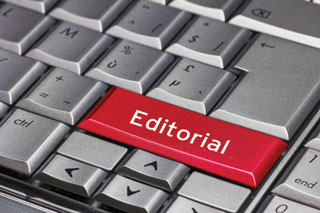On Jan. 6, 2021, a group of domestic terrorists stormed a government building in an effort to violently prevent a democratic transfer of power from one elected leader to another.
The above reads like a lead one might expect from Venezuela, Central Africa or perhaps Belarus, not the United States of America. And yet that’s exactly what happened last week in Washington D.C.
Shocking as those images were, they weren’t entirely out of the blue either. For nearly five years now Donald Trump has stoked the flames of unrest, openly questioning the United States’ democratic process. Even before his 2016 victory he spouted baseless claims of a rigged system. He continued those claims on last year’s campaign trail, doubling and tripling down on them as election day grew nearer and the polls showed his days were numbered.
Last week it all boiled over as some of his supporters forced their way into the Capitol in a last ditch effort to prevent the democratic election process. The irony of Trump supporters scaling a wall to illegally enter a place they shouldn’t be would be rich, if the whole situation weren’t so disturbing.
Trump’s delayed, half-hearted attempt to call for an end to the violence will be his legacy. His insistence on spreading proven lies about the election and the violence it sparked will forever be noted in history.
As Canadians, we too must take note of the lessons that can be learned from last week’s tragedy. While we like to shake our heads at what goes on down south and assure ourselves it could never happen here, it was less than five years ago that a scenario like that seemed impossible in the USA.
Odd as it may seem, our collective dislike of political leaders might be the key to preventing an angry mob on the doorsteps of Ottawa’s Parliament Hill.
Those that don’t like Justin Trudeau really, really don’t like Justin Trudeau. Those that do like him however don’t really, really like him either. To put it another way, those who support Trudeau might show up at a rally or two and then cast a vote for him on election day. Even at the height of his popularity in 2015, there were no flags, hats or bumper stickers proudly displaying his campaign logo as one might see in Trump territory. Supporters may largely liked what he had to say but they weren’t willing to make him a central figure to their lives, hanging on his every word and ignoring every fault. While his first election win in 2015 may have drawn comparisons to ‘Trudeaumania’ of the late 1960s, by 2019 the Liberals were held to a minority government.
The same lack of Trump-like celebrity status can be said for any leader of a major Canadian party. While Canadians may all have a leader or two they really don’t want to see as prime minister, there doesn’t appear to be one who they’d be willing to riot over if they didn’t get in, either.
That’s not to say they may not grumble about it for the next four years, but by in large election results are accepted here.
Hopefully that will continue. Our elected politicians have a responsibility to ensure this continues and to avoid sinking to the level displayed by the outgoing president. If the history of last week tells us, it doesn’t take much to shake a democracy to its core.
-Adam Prudhomme

